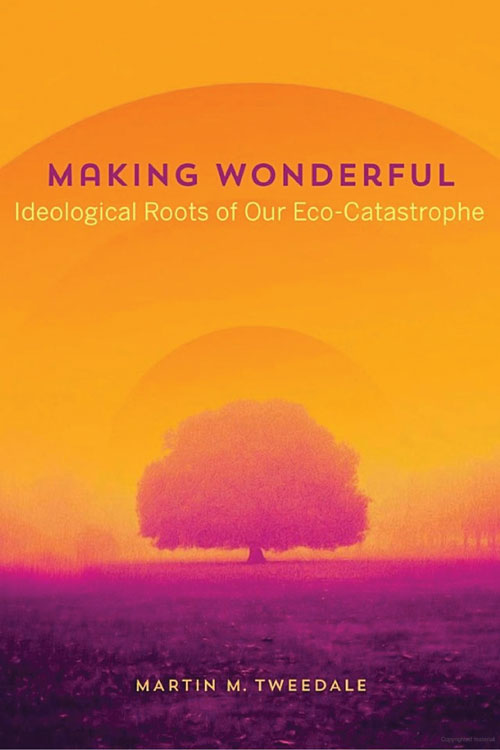Accurate scholarship,” wrote W.H. Auden at the eve of the Second World War, “can/ Unearth the whole offence/ From Luther until now/ That has driven a culture mad.” Martin M. Tweedale, professor emeritus of philosophy at the U of A, would agree. But the madness whose origins he examines in Making Wonderful is much older, and just as dangerous, as the one that culminated in Auschwitz and Nagasaki.
The madness that drove us to the brink of making the only planet we have unlivable for our descendants has its ultimate origin, Tweedale tells us, in the rise of cities in Mesopotamia some 6,000 years ago. While urban elites also came to dominate country dwellers in other parts of the world—most notably in India and China—Tweedale focuses on Mesopotamia and, as he moves forward into later eras, on the Mediterranean basin, Europe and the Americas. That’s because the ideologies that have led to the current climate and ecological crisis are peculiarly Western responses to the inequities that resulted from the division of humanity into the rulers and the ruled.
Most societies, according to Tweedale, coped with the trauma of urban civilization with ruling-class ideologies and religions (Stoicism, Buddhism, Confucianism) that stressed individual balance and virtue in a world filled with suffering. But the Christian West (via Zoroastrianism and apocalyptic strains in Judaism) came to believe that one day God would end all suffering—rewarding the virtuous poor and punishing the wicked rich. Eventually this belief transformed into revolutionary forms of Christianity that sought to perfect the world (for the benefit of humans, of course). That zeal for perfecting the world, when secularized and identified with technological advances and economic growth, is what got us where we are today.
Tweedale’s argument makes a lot of sense. I wonder, though, if it isn’t at least partially a case of a guy with a hammer (expertise in the history of Western philosophy) seeing nails everywhere he looks. It’s true enough to say that pre-colonial China and India, along with pre-Reformation Europe, weren’t as tightly focused on technology and economic growth as, say, 19th-century England. But they weren’t not interested in them. We would be facing a crisis eventually even if Europe hadn’t hijacked the rest of the world’s resources.
Making Wonderful demands more from its readers than most popular accounts of intellectual history. That’s not a bad thing—potted versions of complex ideas tend to do more harm than good—but it does mean Tweedale’s ideas will spread, if at all, via simplifying op-eds and book reviews. It’s enough to make you weep, if you didn’t have bigger things to weep about.
Alex Rettie is a long-time reviewer for Alberta Views.
_______________________________________


